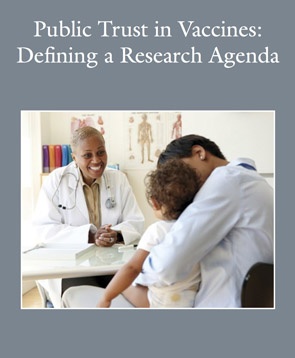Spotlight | Science Writing
Mnookin co-authors AAAS report on vaccination research
Years after a groundless report linked vaccines to autism, the consequences of the fallacy are still being felt as measles, mumps, and whooping cough spread through undervaccinated communities. Yesterday the American Academy of Arts and Sciences released a report — co-authored by Seth Mnookin, an assistant professor of science writing at MIT — that makes it clear that reversing this trend will require dedicated research on how vaccination decisions are made, and on the best ways to communicate factual information to nervous parents.
The report, “Public Trust in Vaccines: Defining a Research Agenda,” was announced in the journal Science with an editorial written by Mnookin and his co-authors, Barry Bloom of the Harvard School of Public Health and Edgar Marcuse of the University of Washington. “Vaccines are one of the safest and most cost-effective medical interventions in history,” they write. “By immunizing infants, children, and teenagers, vaccines protect the entire community. Nevertheless, there is a surge of outbreaks in vaccine-preventable diseases in the United States. What research is needed to reverse this trend?”
The associate director of the Graduate Program in Science Writing in MIT’s School of Humanities, Arts, and Social Sciences, Mnookin is the best-selling author of The Panic Virus (Simon and Schuster, 2012), which examines how inaccurate scientific reports linking vaccines to autism have reverberated through the media. In this interview, Mnookin describes the need for and the purpose of the report.
